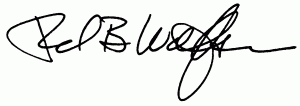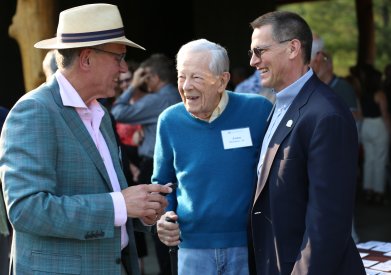It’s About the Conversation
April 9, 2014
There is an interesting conversation taking place around Choosing Wisely® and a recent JAMA study by Pearson and Gliwa. It’s heartening to see that the campaign is doing what it was always meant to do – spark conversation.
In their study, Gliwa and Pearson sought to “evaluate the role that evidence on benefits, risks, and costs plays in selecting a service for the Top 5 lists.” They conclude “Specialty societies can enhance trust in the Choosing Wisely campaign by defining more clearly the types of potentially wasteful medical care they seek to eliminate, and by providing a clear evidentiary justification for the selection of each service.”
Tackling the concept of “waste” in health care is not an easy thing. There are many factors that contribute to waste – higher costs and unnecessary treatments being only a couple of them. In the end, the Choosing Wisely campaign originated out of the desire to provide a space for waste to be discussed—between physicians and their patients, groups of physicians and physicians and the organizations in which they work.
Wasteful or unnecessary treatments can also lead to patient harm. The authors found that of the 135 services reviewed, 49% mentioned greater risks to patients as a rationale for inclusion. The authors also noted that this analysis only included explicit mentions of patient risk—and that some risks, such as radiation exposure, were not included although were likely an implicit concern. Given this explanation and the number of radiation services identified by specialty societies, one could imagine the percentage of recommendations related to patient risk could be far greater.
On a Healio blog post about the study, a comment by Dr. Theodore M. Freeman sums up the campaign quite nicely. “The beauty of the campaign is in creating dialog between physicians and between physicians and patients.”
In his comment, Freeman goes on to address Gliwa and Pearson’s conclusion around enhancing trust, writing, “My question to Gliwa and Pearson is whose trust are we trying to enhance? The answer should be the trust of our patients, that their best interests are always closest to our hearts as physicians. This is trust that Choosing Wisely is enhancing in its current format. If we seek to enhance trust by our administrative colleagues in Choosing Wisely as a means of controlling costs by eliminating care that might be useful in some situations, I think we are failing in our duty to our patients.”
The categorization of the Choosing Wisely recommendations in evaluating evidence is important work. As we think about the future of the campaign and new areas of waste to be addressed by specialty societies and other organizations, it will be critical that this work is approached systematically and grounded in evidence. We look forward to continuing these conversations about how we can eliminate unnecessary care so that we can improve the health care system for all patients.

Daniel B. Wolfson
EVP and COO, ABIM Foundation


